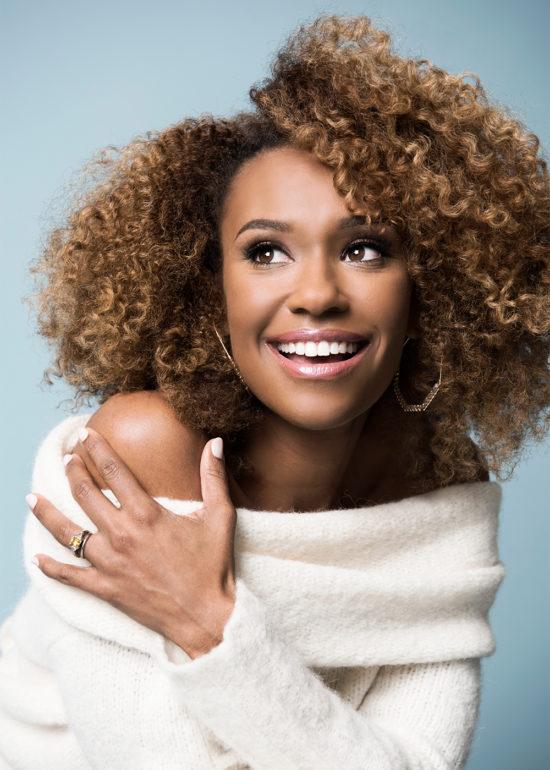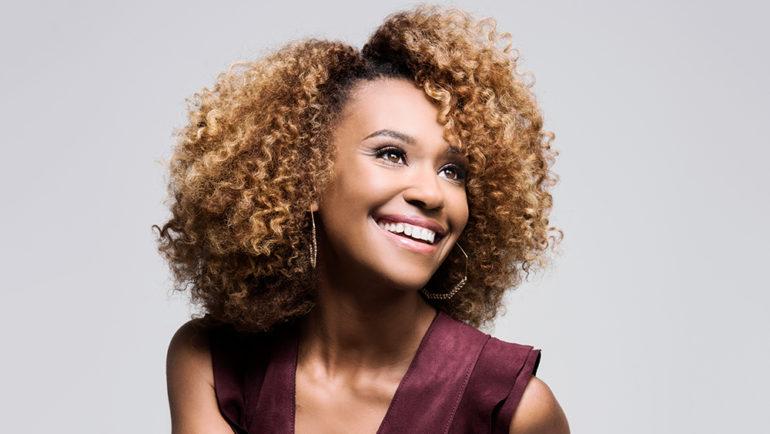‘First Wives Club’ Star Ryan Michelle Bathe Talks ‘Homage’ Series and Evolution of Feminism
By Danielle Turchiano
LOS ANGELES (Variety.com) – For almost two decades Ryan Michelle Bathe has made the rounds on such television shows as “Girlfriends,” “Army Wives,” “Empire” and “This Is Us.” But now she will be best known as one of the stars of BET Plus’ “First Wives Club.” The show was originally set up at Paramount Network, but in late 2018 it was moved to another Viacom network, BET. Then, BET announced it would be one of the first shows launched on its new streaming service, . “,” which is from Tracy Oliver and loosely based on the 1996 film of the same name, is a show Bathe prefers to call an “homage,” rather than a reboot.
Your character Ari in “First Wives Club” is being positioned as a lawyer and friend first, before the relationship drama. Is it intentional for you to seek out roles that are notably empowered and educated at this point in your career?
The role kind of fell into my lap a little bit. I would like to say that it was something I went after, sought after, was part of a grand design on my part, but it was part of a grand design on a much more universal, divine plan. I was just obedient enough to say yes. But it definitely speaks to what I think people are trying to do now which is create roles for women that reflect the depth and the power and the vulnerability — making extraordinarily well-rounded characters for women. … People give lip service to it all of the time…but now I think we can really, truly say that people are making a push, and it’s because of the people behind the camera — the writers, creators, directors — they’re all working from that perspective. Even if they, themselves, aren’t women, the idea is to give women a voice.
What was the main draw of the character then?
I think the main thing I attached to, first of all, was [creator] Tracy Oliver. I was just so impressed. She charmed me, what can I say? She’s smart. And it’s one thing when people say they’re going to write these roles, but it’s another thing to actually have someone who’s lived it — lived what it’s like to be a groundbreaking woman in a male-dominated field. “Girls Trip” was such a huge success on so many different levels — for women, for women of color, financially — so she has walked the walk and she’s seen an experience in her very, very young life but her career seems like it’s really, really, really long. To be able to interact and interface and be a part of such a smart, witty, brilliant woman’s journey, I could not turn it down. That’s what attracted me to the role. I could see a lot of Tracy in Ari, and to be able to build something from the ground up with the writer and creator felt too good to pass up.
How much of yourself are you putting into the role?
For me, it’s subconscious. You just put all of yourself into the role. But then once you really get in there and delineate, then you bump up against, “I would never do this, but she would do this and here’s why.” Or “This is definitely something that I would do so I will push Ari in this direction.” … I definitely bring all of myself, 100% of myself, even if I don’t use it all — it has to be brought to the table to shape who this person is.
What has been the most important aspect of forming the same kind of bond with your costars that your characters have on-screen?
We got truly blessed because Michelle [Buteau] and Jill [Scott] are amazing, and they have an innate, unteachable understanding of what it means to be girls. We are a unit, and it’s the three of us against the world most of the time. … We just got the right people, who have a deep understanding of what sisterhood is. None of us are those girls who are just like, “I don’t have any girls that are friends.” It makes our job not just easier but more lovable. I love going to work because I know they’re there.
How do you hope the show furthers the conversations around the issues facing women today?
The conversation around, “when do you put yourself first?” No one wants to be selfish, no one wants to be self-centered, but at the same time if you don’t know what that balance is, it can lead to you disappearing. And how can you continue to evolve as a person and put your needs first and put yourself in a way that’s healthy? I think that’s the next conversation of what it is to be a modern woman. I think the first conversation was just, “Hey, can we vote?” And I think the second conversation was, “Can we have a job?” and the third was, “Can you not sexually assault us at work?” So we’ve been chipping away at these conversations and people talk about third wave feminism, which I think is ridiculous — I think it’s more like 15th wave, and it’s still the same women; it’s not like they’ve gone anywhere or been washed out to sea. It’s a deepening understanding of what this means, and [now] I think the conversation is, “How do we continue to evolve as women?”
The 1996 movie is so iconic for so many people, what is the balance you want to find between honoring the original and doing something new for today’s audience?
I like to think that the best way to honor it is to do it. … So for me the honor is just getting to this point because what a vindication. These women should have had “First Wives Club 2,” three, four, five and six — just like Harrison Ford, just like we had [so many] “Lord of the Rings.” They deserved their sequel, and I feel like the fact that there are three strong women rebooting this, what hopefully becomes a franchise, is the coup. Of course people are going to compare it because we’re all women, so of course we have to compare ourselves to each other. But maybe in us making a stand that we don’t want to do that is where we win.
To what do you attribute the interest in such a project now?
I call it the “Michelle Obama effect” — because until Michelle Obama hit the scene we had never seen a black woman sell out a pair of shoes or a shirt. If she wore it, by God, two hours later you couldn’t find it. I don’t care if it came from Target, the Gap or Versace — if she did it, everybody wanted it. And let’s face it, this world and our society, we look at who sells stuff, and we look at that as an indication of worth. Now of course Michelle Obama is worth way more than what she can sell. … But especially in this business — when I was first starting out, people would always say, “Black movies don’t make any money,” so it was always about money. And all of a sudden, in their face, they had an actual reason that, no, that’s not true. … Michelle Obama broke a huge glass ceiling as the first black woman in the White House, and I think it began to really define what was possible. … But then in TV you also have more room with all of the streaming services and newer platforms, so I think those two things combined are really what’s given us the opportunity to be where we are — me, specifically, and the royal us.
Do you find yourself giving different advice to new talent coming up today than what you would have said to them a few years ago because of changes like this?
I do. There used to be a time when people would say, “Write your own story,” but people would say, “I’m not reading this.” So it was still the same world where you could write something but that doesn’t mean somebody is going to film it. Now, you really can take something and put it on YouTube, so you really can do it yourself in a way that was truly impossible seven, 10, 15 years ago. And there’s a lot more room at the table, so I definitely say to people, “If you get a ‘no’ in one meeting, just go to the next.” And I don’t feel those options were available 15 years ago — there was one avenue. And now there are almost infinite avenues.
When you think back on some of your earlier roles, of which do you feel most proud that people still recognize you for today?
I’m surprised when people recognize me from “Army Wives” and I’m also most proud of “Army Wives.” We had to fly through Atlanta, and there’s a lot of service men and women, and they would always come up to me, “Excuse me, ma’am, I would like to speak to your husband. My wife or my husband is a very big fan of the show. Do you mind if I just take five minutes?” And they would just sit there and tell these stories, “When I was deployed in Iraq…the thing that kept me and my wife connected to one another was the show.” So to know I had a very small part in something that had a very small part in our service men and women’s lives, it means a lot to this day.


